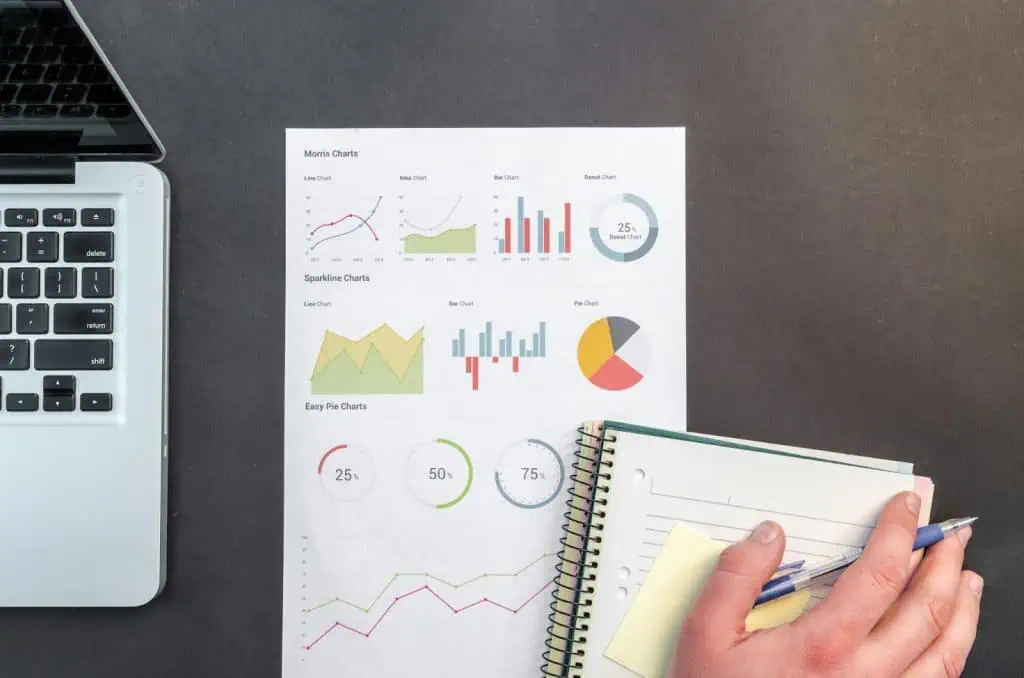When it comes to running a small business, properly being able to manage your finances is one of if not the most important elements for success. This is the case no matter what sort of business you run, with your ability to control and organize what’s coming in and what’s going out a make-or-break situation.
Table of Contents
On top of that, doing so is no easy feat: there’s a lot of work that goes into it, and every decision – big or small – matters. In this article, you’ll receive a rundown of the most important factors to consider when it comes to managing finances as a small business.

Building a Budget
As a small business, defining a solid budget keeps you on the straight and narrow. Your budget will determine where you need to prioritize your spending and how to anticipate expenses, and with it being a highly individual element, you really just have to start somewhere and figure things out as you go along.
Here are some ways you can systematize the process:
Setting Budget Catagories
Trying to manage your budget as one sum isn’t the right way to go. Instead, divide it into relevant categories, such as inventory, salaries, marketing, and so on.
Again, these categories and the priorities placed on them will be different depending on what type of business you have. Regardless, working things out individually and then bringing it all together at the end will be a huge help.
You also can use different visualisation tools that would help you with the analysis. For example, Power BI financial dashboards help companies to analyse each category separately and all together more efficiently, eliminating manual inputs.

Analyzing Previous Spending
A large part of figuring out your finances as a small business is to take a look back. Look at how your spending has been over the last six months to a year, and cross-reference the numbers against aspects like seasonal fluctuations and sales.
Check to see where sales dipped and at what times they were at a high, and aim to replicate whatever caused the positive changes over the long term. It’s best to utilize a cash flow statement or a financial dashboard to view expenses and revenue, culminating in net cash flow: focus on the patterns you see in the aggregate.
Alongside your more in-depth analysis, it’s also very important to conduct smaller, more regular reviews of what’s coming in and out each month. The ability to adapt on the fly is an invaluable skill to hone, and if you can master it, you’ll always be in a strong position to course correct if things go wrong.
Ultimately, there’s a lot of guesswork when it comes to your organizing budget, but a series of evidence-based predictions can go a long way.
From here, you can start to build a forecast revenue (a prediction of how much money the business will generate by selling its products and services) which you’ll then use as a solid template going forward.

On the Topic of Cash Flow
As the data that describes the amount of money moving in and out of a business, cash flow is the number one metric determining your success. Here are some key aspects to keep in mind as you consider your own cash flow:
The Importance of Monitoring Expenses
Your expenses can be split into those that are fixed or variable. Fixed expenses are those that remain the same each month – think rent, insurance, and other consistent payments you have to make (even though these may change slightly over time, they’re still considered fixed).
Variable expenses are the opposite: payments made that fluctuate from one period of time to the next, such as labor costs, utility billing, or the fluctuating costs of stock or raw materials.
There are also semi-variable expenses, but more often than not, it’s best to split things into just two categories for the sake of simplicity.
Regardless of whether you’re dealing with fixed or variable expenses, each deserves its own category and should be monitored closely – you can incorporate your management of expenses as part of your budgeting and review process.
Building a Cash Reserve
Maintaining a cash reserve is an incredibly important part of the process of managing your finances as a small business. Essentially, a cash reserve is a sum of money you keep on hand in case of an emergency.
Running a business is full of surprises, both positive and negative, and for those less-than-ideal situations, it’s crucial to have some money kept back to solve the problem – whether it be a small dip in revenue or having to make a large, unexpected payment.
Your ability to form accurate projections, as outlined in the section above, will help mitigate these problems, but sometimes, you just need a safety net!
Building Strong Relationships With Suppliers
A great business is built on strong relationships, and aside from your customers, the number one bond you need to build is the one with your suppliers.
Honing adaptable negotiation skills is something of a fine art, but master it, place yourself in high regard with your suppliers, and that high degree of trust will go a long way in facilitating the sort of stability you need.
Suppliers will be much more willing to work with you rather than cutting their losses if things go wrong, and aside from this, you may even get special discounts.

Managing Your Finances As a Small Business – Leveraging Funding Options
Sometimes, especially if you’re only just starting out, it may be prudent to explore funding options. There are a huge variety of different options available for many different types of businesses and separate use cases, but here are some of the main approaches you should know about:
Small Business Loans
A small business loan is one of the main forms of funding available and is the most likely to be approved. These are often used when you’re starting up to fund large payments you wouldn’t ordinarily be able to afford, such as expensive pieces of equipment.
If you already have a well-established business, banks can also support you with a business loan if you need to do renovations.
Business Lines of Credit
A business line is a financing option that offers a finite pool of money a business can draw on when they need it, up to a specific pre-approved credit limit. Generally, this option is chosen if your cash reserve is too small to cover an unexpected expense and you need some extra financial assistance.
The VAT Loan
One unique financing option for a small business is VAT loans. Dealing with VAT payments can cause a lot of strain for many businesses, and end up seriously hampering short-term liquidity (a company’s ability to pay financial obligations such as bills and debts within the necessary time frame).
The VAT loan essentially covers the cost of any VAT payments that need to be made, helping the business maintain operations and keep this particular payment off the agenda for the time being. It simply makes VAT one less thing to worry about, as many times, these payments can be the straw that breaks the camel's back.
Invoice Financing
When a business is experiencing long payment cycles (when a buyer is taking longer than usual to pay), they can utilize invoice financing to borrow against the outstanding amount, which provides immediate access to the necessary funds despite the fact that the customer hasn’t paid yet.
Business Credit Cards
Business credit cards operate similarly to normal credit cards, except with perks such as higher credit limits for added flexibility.
They can be used to cover immediate expenses when a business is in a pinch and has no other means, but it’s worth mentioning the other methods of securing a reserve of cash in the first place are far more favorable – use a business credit card as a last resort.
Merchant Cash Advances (MCA)
A merchant cash advance works by a lender providing an upfront sum of cash in exchange for an agreed-upon percentage of future sales. They’re often used by businesses such as retail or food because they have steady credit card transactions.
They’re more flexible than a fixed payment loan but come with the drawback of generally higher fees and interest rates.
Crowdfunding
Platforms such as Indegogo and Kickstarter represent a unique option for businesses to raise the funds they need from a wide variety of donors who believe in their ideas. Crowdfunding is a popular method for launching new products or services and is used concurrently as a marketing tool to raise awareness.
The key is to have a very well-thought-out strategy going in, and in many ways, this serves to prepare the businesses by getting them to think through everything properly before committing.

Final Words on Managing Your Finances As a Small Business
As you can see, there’s a great deal that goes into managing your finances when trying to run a small business. The reality is that this stuff takes a lot of time to get down, and a lot of trial and error.
There will be highs and lows, but so long as you stay consistent, do your research, and take things one step at a time, you’ll build yourself a robust plan that will support you properly going forward.


